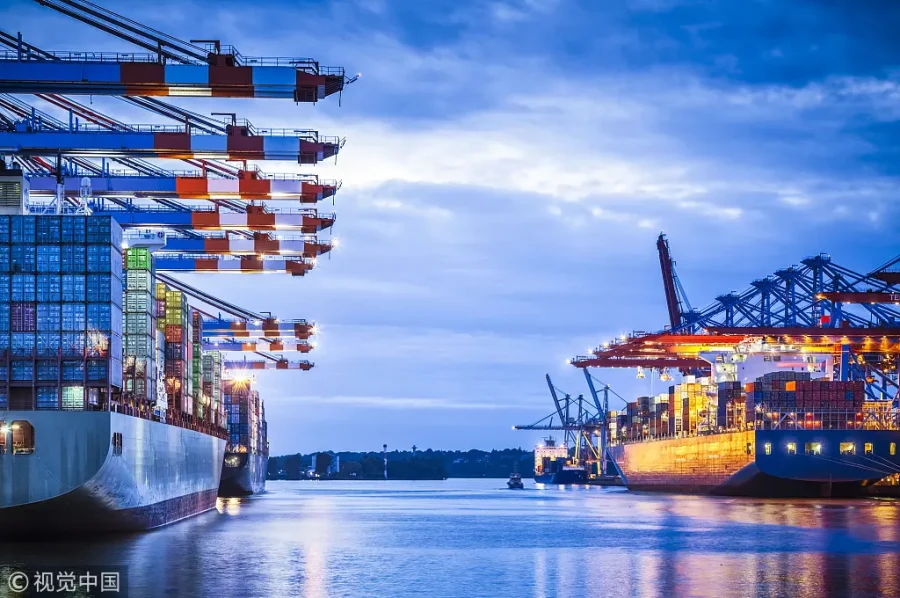New provincial governments have almost been sworn in across the country. The formation of the federal government will be completed very soon, completing the democratic transformation through ballots, where the free will of voters played an important role in the country.
China-Pakistan Economic Corridor (CPEC) Phase-II comprises social development, massive industrialization, formation of SEZs, agricultural cooperation and last but not the least, science & technology. Relocation of qualitative industries from China to Pakistan would be a value addition in this regard.
The anticipation of a Shehbaz Sharif-led federal government augurs well for the continued progress and expansion of CPEC Phase-II, leveraging his extensive experience and expertise. However, vital challenges such as resolving pending dues to Chinese companies, ensuring the safety of Chinese workers, and providing sovereign state guarantees for investments remain pressing. Moreover, the establishment of the newly formed SIFC and the removal of operational hurdles are essential for enhancing the efficiency of CPEC projects. Promptly addressing these issues will communicate positive signals to the Chinese government and investors, fostering further investment in the country’s economic landscape. Despite the government led by Shehbaz not yet being formed, the prospect of his leadership instills confidence in championing shared prosperity and driving economic growth and prosperity in the nation.
The recent commemoration of the 10th anniversary of BRI’s CPEC reaffirms their significant contributions to both the nation and the global community. CPEC has emerged as a transformative force, catalyzing socio-economic development activities in the country. Notably, Chinese track-II diplomacy has facilitated a diplomatic breakthrough, fostering closer ties between Saudi Arabia and Iran, which augurs well for the broader acceptance and productivity of BRI and CPEC initiatives. Moreover, the recent agreement to upgrade and include third-party participation in CPEC Phase-II is poised to expedite its development, offering substantial benefits for immense social development, poverty alleviation, job creation and the provision of basic necessities and human rights. Furthermore, the establishment of corridors focusing on science and technology, green energy, AI, digitalization, human capital, SMEs, hybrid agriculture, health, smart settlements and good governance will be instrumental in advancing the goals of CPEC Phase-II, ensuring sustainable and inclusive growth for the nation.
According to latest figures (December 2023), under CPEC many mega projects (15) have been completed including coal, windmills and hydropower. There is an urgent need to change the mix of energy production under CPEC so that real benefits of green energy and transformation may be achieved and institutionalized in the country. In this regard, building of lithium, quantum and nuclear batteries, solar panels production, Hydrogen Power Generation Units, massive production of EVs and last but not least, converting sandy lands into green fields must be one of the key strategic priorities of the new government in the country.
While rigorous work is ongoing on six projects, including the Suki Kinari hydro project of Khyber Pakhtunkhwa, its 70 percent work has also been completed. With the completion of all these projects, hopefully thousands of megawatts of electricity will be added to the national grid. Therefore it is necessary to make better use of the help of the Chinese investments to remove the current hurdles in the way of electricity trans-mission at the grassroots level.
Additionally, under CPEC, the project Rashakai Special Economic Zone in Khyber Pakhtunkhwa is near to its completion, in which 247 acre of area have been prepared and ready for FDIs. Several enterprises have been registered while a few have started construction of their industrial units. Sincere and systematic efforts should be started to promote Public-Private-Partnership to boost FDIs, industrialization and productivity channels in the country.
Even surplus assets of the domestic banking industry should be diverted into productive projects instead of constantly investing in the Treasury Bills and earning easy money. The domestic banking industry should realize its national reasonability of socio-economic prosperity and come forward to invest in ongoing projects of the CPEC in the country.
Agriculture and tourism industries are considered to be the main pillars of macro-economy in the country. There is an urgent need to develop numerous tourist resorts, parks and panic points parallel to mega infrastructure projects of the CPEC in all provinces. Innovative ideas are needed to develop tourism industries in the country in which rich experiences of China, Indonesia, Vietnam, Thailand and Oman may be prime examples for tourism development in the country.
In this regard, infrastructure investments in rural areas should also be promoted. The roadmap of newly elected Chief Minister of Punjab Maryam Nawaz may act as a game changer in the days to come. Rural connectivity with SEZs will further foster economic growth, rural revitalization creating opportunities for the poor to uplift their economic status, which is a precursor to inclusive growth.
People, investment and business friendly policies should be the mantra of new governments, which will give hope of economic revival, stability and sustainability. Denial of political stability and social harmony has been damaging the core fabric of the society due to which community development and overall national economic growth remained below par in the country.
There is an urgent need to recognize and formalize national duties and responsibilities among all key stakeholders to steer the fragile economy onto the right path. It’s time for collaborative efforts to pursue the common objective of socio-economic prosperity without succumbing to individual ambitions or resorting to political strife and character attacks. Indeed, the task of economic revival is formidable and cannot be tackled alone. Embracing economic nationalism, fostering political consensus, achieving social cohesion and uniting the efforts of both civilian and military establishments are imperative for charting the course forward.










